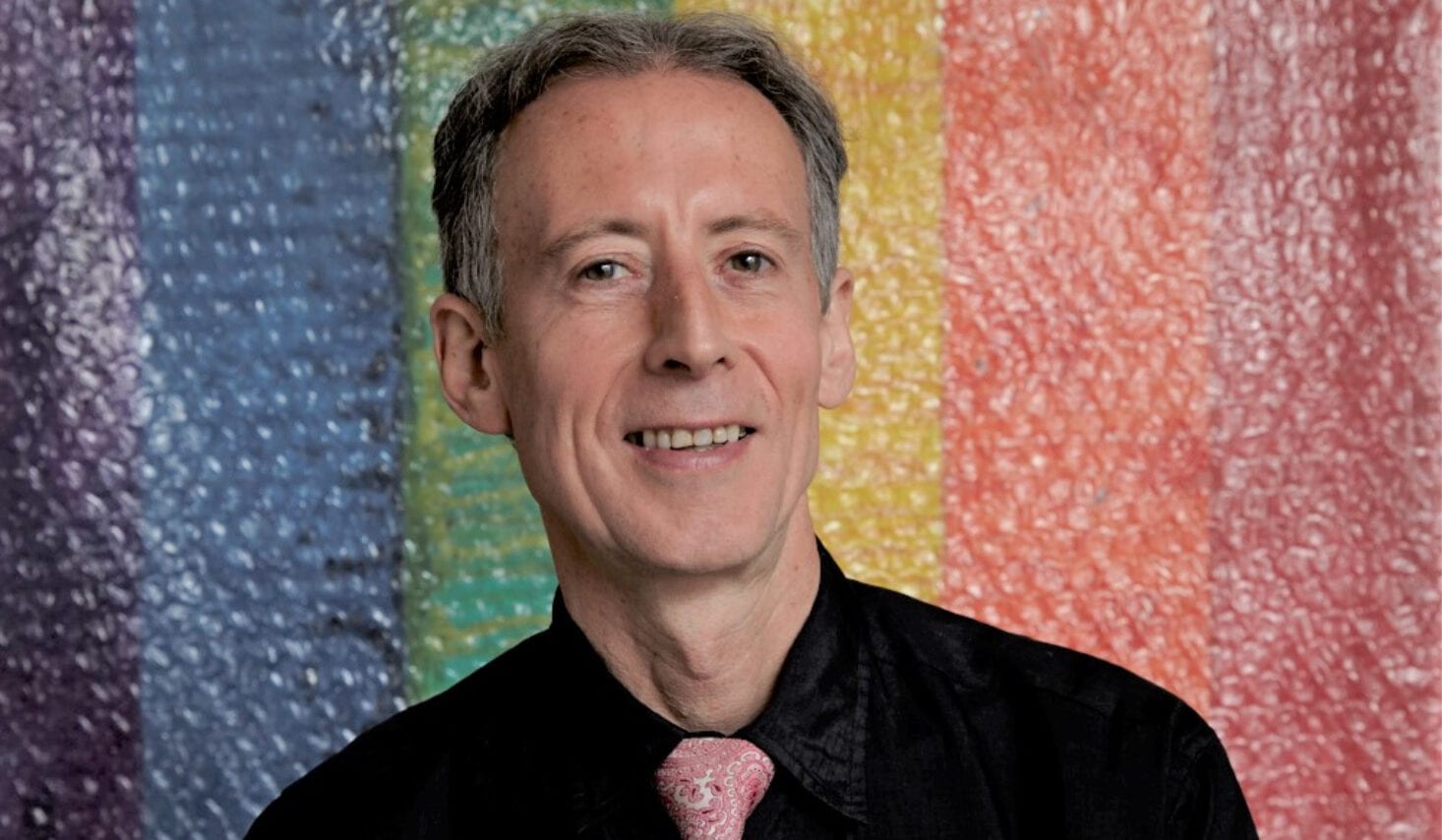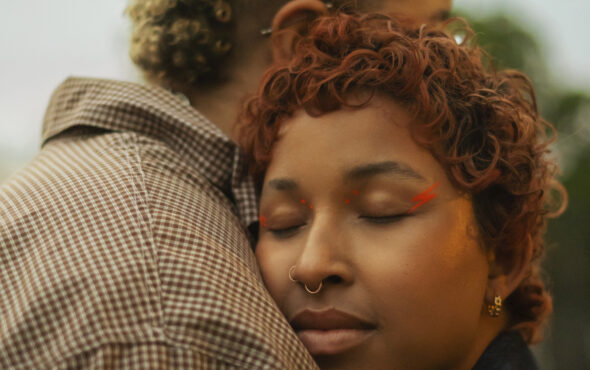
Peter Tatchell is a leading human rights activist and Director of the Peter Tatchell Foundation. Over more than 50 years Peter has campaigned for LGBTQ+ rights. It was great speaking to Peter, who emphasises the centrality of protecting the environment and why we all need to fight for the climate.
You have said that climate change is a queer issue. Why do you say that?
Humanity faces an unprecedented climate emergency. It threatens everyone, including LGBTs. There is no point campaigning for LGBT+ freedom if we don’t have a planet on which to practice and enjoy it. That’s why climate justice is a queer issue. Climate chaos menaces our LGBT+ future. We must not collude with environmental, species and climate destroying coal, oil and gas companies. They put profits before human health and survival. As victims of oppression ourselves, we LGBTs must stand in solidarity with the victims of fossil fuel production, against their corporate oppressors. This solidarity is in their interest and also in our interest too, because many of the victims of the pollution and climate damage caused by the fossil fuel industry are LGBT+.
The climate crisis is now a major political issue. How serious do you think it is?
The future of life on Earth is in potential danger. Sir David Attenborough has warned we are risking the collapse of the global food and fresh water supply. Rising sea levels caused by the melting of glaciers and the polar ice caps are set to swamp low-lying land, including parts of the UK. Our whole way of life is under threat. Dr James Hansen, the ex-NASA scientist who is now at Columbia University’s Earth Institute, says we face a catastrophe equivalent to a direct hit from a huge asteroid, like the one that wiped out the dinosaurs. The UN described its last climate report as “Code Red for Humanity ” and said “the truly dangerous radicals are the countries that are increasing the production of fossil fuels.” We would be fools to ignore these warnings.
What is the likely global impact of climate destruction?
The climate crisis has already killed, injured or made homeless and jobless millions of people worldwide through sea level rises, floods, droughts, hurricanes and forest fires, especially in Pacific and Asian island states and low-lying delta regions in the global south. Those affected include LGBTs who have sometimes faced discrimination at emergency shelters and disaster aid centres. During the summer, a LGBT+ family fleeing forest fires in Greece was turned away from relief accommodation. If the fossil fuel industry is not stopped, then hundreds of millions more people worldwide may lose their homes, jobs and lives.
What about the impact on UK cities like London?
Climate destruction will affect London and other UK cities too, with expected future sea level rises and storm surges that will overwhelm the Thames Barrier and regularly flood large parts of London, according to NASA and the official London flood map. This will devastate the lives of around two million Londoners, including more than 200,000+ LGBTs, with the mass loss of homes and jobs in the capital. Houses and businesses in the flooded parts of our big cities will become uninhabitable, uninsurable and unsellable – worthless.
Some people predict that the world can, in years to come, expect to see millions of climate refugees. How realistic is that?
The numbers are relatively small now but we will face tens of millions of climate refugees in the decades ahead. Many of the world’s most populous and productive agricultural regions are in river deltas that are only just above sea level. When they disappear under the waves, and the ground water turns saline, there will be a massive fall in global food production. People in those areas, including LGBTs, will lose their homes and livelihoods. They will flee in their millions to drier, safer land and in many cases to less affected countries. Most will arrive destitute, with no homes or jobs to go to. As more and more people squeeze into ever smaller pockets of habitable land, overcrowding will become intolerable and public services, water and food supplies will not be able to cope. Hunger, poverty and death will run out of control. Even in the UK, we can expect to see climate refugees as people flee flooded parts of the country. Where will they go? Where will they be housed? Where will they find work?

Could climate chaos lead to a rise in global conflict?
Scientists have warned that climate change will result in new and increased diseases, desertification, mass drought, declining fresh water supplies, crop failures and starvation. This is likely to cause a rise in terrorism and war, as nations and factions scramble for control over limited fresh water and food supplies and over declining and more scarce natural resources, from minerals to timber.
With all our futures under threat, do you think fossil fuel companies should be banned from Pride?
There can be no Pride in climate destruction and those who enable it. LGBT+ Pride events should reject all involvement and sponsorship by fossil fuel companies and the banks that fund them, including refusing their floats in the parade. They are using Pride to ‘greenwash’ their death cult. Already, much of the cultural world realises this and is cutting ties with this toxic industry, including Royal Shakespeare Company, National Portrait Gallery, BFI and Southbank Centre, Picturehouse Cinemas and the British Museum.
What do you say to people who point out that Prides need sponsorship?
Of course, LGBT+ organisations and Pride events need funding but it has to be from ethical sources. We should not collude with the biggest and most threatening problem in the world today: climate destruction and the fossil fuel companies that enable it. No company should be involved in Pride if their business model includes knowingly working with corporations whose policies involve destroying nature and human society as we know it. There can be no Pride in a broken devastated planet. I’m appealing for the safety of LGBT+ people all over the world, especially those in countries already devastated by droughts, floods and fires induced by the climate crisis, such as Pakistan, USA, Greece, China, Bangladesh and Pacific island states.
What did you think about the protest at the Pride in London parade by queer activists from Just Stop Oil? Many people thought it was the wrong tactic on the wrong day.
Some people may disagree with Just Stop Oil’s methods and targets but what is undeniable is that they’ve put the climate crisis on the political and public agenda more successfully than anyone else. Their sit-down on the Pride march route was in the tradition of Pride, which began as a protest. JSO’s actions were brief and peaceful, a minor inconvenience for a few minutes. Its style of civil resistance has been central to the decades-long fight for LGBT+ freedom. Their protest, which sought to ensure a healthy, safe and happy future for the next generation of LGBT+ people, struck me as entirely commendable. Just Stop Oil reminded us that Pride should return to its roots as a march in the spirit of the 1969 Stonewall Uprising: a protest for LGBT+ rights but also in solidarity with other peoples, against all injustice, including climate injustice. Pink and green are two sides of the same quest for a better society and world, for everyone.
Learn more about Peter Tatchell Foundation here.


